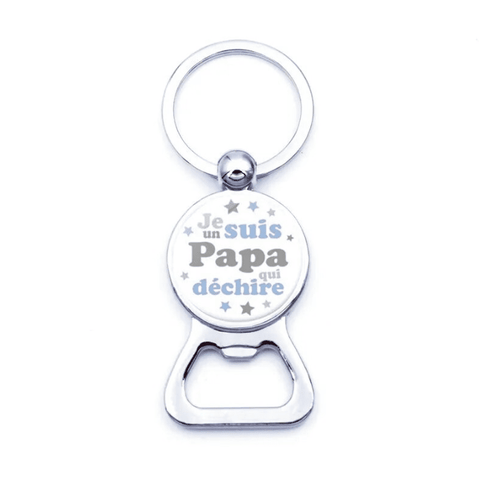
What is the nutritional value of beer?
of reading
This is a question that often comes up in discussions during aperitifs with friends, don't you think? Especially in France, where we're used to drinking wine frequently. Comparisons are often made between these two drinks.
In this article, I'll list the ingredients in beer and tell you the calorie content of each one. I hope this will help you understand things more clearly the next time you're in the mood for a beer.
What are the ingredients in beer?
There are over 2,000 substances in modern beer . Many of them are beneficial for our bodies. As you know, our diet provides our bodies with the elements they need to function.
These many substances come from the basic ingredients that are used when brewing beer . In most cases, they are:
- Water
- Malt
- Hop
- Yeast
We can add to this list 2 ingredients that appear after the beer is encapsulated:
- Alcohol
- Carbon dioxide

I should point out that the alcohol in beer is not one of the ingredients, as it appears in the beer after it has been bottled. It is the yeasts added just before that will eat the sugar it contains. When they digest it, our dear yeasts release carbon dioxide and alcohol .
Carbon dioxide allows our beer to be naturally carbonated , without the addition of gas as with most sparkling waters, for example.
What exactly does beer contain?
The recipe for beer has evolved over the millennia, but to keep it simple, we'll use what you can find in your everyday beer mug . Basically, the lager you find at your local supermarket.
Beer contains mostly water
Water makes up about 92% of beer . Beer's thirst-quenching effect is due to its high water content and minerals, among other things. I'm not telling you anything new when I say it's vital for our bodies.

Beer contains malt
Malt is made from a cereal, barley , which has been processed to give it more flavor. Like all cereals, malt provides us with essential amino acids as well as other non-essential acids.

Malt also provides beer with carbohydrates , protein compounds, minerals and trace elements, vital organic acids and vitamins.
Beer contains hops
Hops originated as a medicinal plant . It was added in the Middle Ages by German monks because they realized that it allowed for better preservation, in addition to the bitter taste that broke the sweet taste of beer.

Hops do not provide measurable amounts of minerals or vitamins. However, they are recognized as a natural relaxant and are commonly used in naturopathy. They also possess anti-stress and sleep-inducing properties. This is why they are also used in homeopathy.
Beer contains yeast
As seen previously, yeast is responsible for the organic changes in beer . During these processes, alcohol and carbon dioxide are generated. Yeasts are made up of proteins, enzymes, vitamins (especially B complex, vitamin D) and minerals.

Without the addition of yeast, beer would really not be the same. Yeast provides some nutrients, but it is best known for facilitating intestinal transit . Food is digested better when yeast is present.
Beer contains alcohol
According to extensive research, alcohol has many facets , some of which can be contradictory. These include:
- A food
- A fuel
- A cleansing and analgesic agent
- A stimulant and a sedative
- An agent that promotes well-being
- A powerful addictive agent that can lead to addiction

In fact, it is the amount of alcohol consumed and its frequency that will determine the effects it can have. Some studies tend to show that one beer a day can reduce the risk of heart attack . Alcohol should always be consumed in moderation in all cases.
Beer contains little protein
Although beer is low in protein, it contains all the essential amino acids and many non-essential amino acids. Beer is therefore ideal as a dietary supplement for a low-protein diet.
Therefore, 100% malt beers are superior to beers made from unmalted cereals. For your information , unmalted cereals are corn, rice , etc.
Beer contains minerals

Beer contains over 30 minerals and trace elements , many of which come from malt. To give you an idea, you should know that 2 pints, or 1 liter, of beer provides:
- Almost half of an adult's daily magnesium needs
- 40% of phosphorus requirements
- 20% of potassium requirements
On the other hand, beer is very low in sodium and calcium .
Beer contains vitamins
Beer contains all the important B vitamins , as well as vitamins A, D and E. To use the previous example, 2 pints or 1 litre of beer covers:
- 35% of daily vitamin B6 requirements
- 20% of vitamin B2 requirements
- 65% of niacin needs

The same amount of beer contains about 200 mg of vitamins and vitamin compounds, mainly from malt.
Beer contains polyphenols
The polyphenol content of beer is about 150 mg per liter , which is relatively high. They are effective against cardiovascular diseases and cancer. Comparable amounts are also present in coffee, tea, and red wine.

Beer contains carbon dioxide
About 1 to 2% of beer's weight is carbon dioxide. As a reminder, this gas comes from the fermentation of sugar by yeast. Carbon dioxide contributes significantly to beer's refreshing effect.
I think you agree that a flat beer isn't really a beer anymore!
What is the nutritional equivalent of a pint of beer and how many calories in a beer?
As a reminder, a pint contains approximately 50 cl of beer. With approximately 160 kcal per pint , this drink is less calorific than apple juice, milk and sodas. Contrary to popular belief, beer does not make you fat (in reasonable quantities, of course) and its nutritional value is respectable. A 50 cl beer glass is therefore quite reasonable.

For your information, a pint of beer contains approximately 16 grams of alcohol , but this level can vary greatly depending on the alcohol content of the beer.
Now you know what you're drinking with every sip of beer. Overall, beer provides good nutrients, but you shouldn't overdo it . It's mainly the alcohol it contains that can have harmful effects if you consume too much. I trust you on this because you've already done your own experiments, haven't you?
If you had the patience to read my article to the end, know that you can benefit from a 20% discount on your entire order by entering the code BLOG20 in your basket.
I'm reserving this code for my most loyal readers who discovered our site through the articles I lovingly post! FYI, the code cannot be combined with other discount codes because you can't overdo it, eh! 20% off doesn't leave us much room to spare, but at least I'm rewarding my readers.
To encourage and support me, don't hesitate to buy something from us! 😊
Our site offers more than 100 beer mugs different and all unique! We have the largest selection online and in physical stores.
To discover all of our products, click on this link: Chopedebiere .
If you want to read one of my other articles, I suggest you discover the best beer-based recipes .
To see all my other blog posts, click on Chopedebiere Blog.













